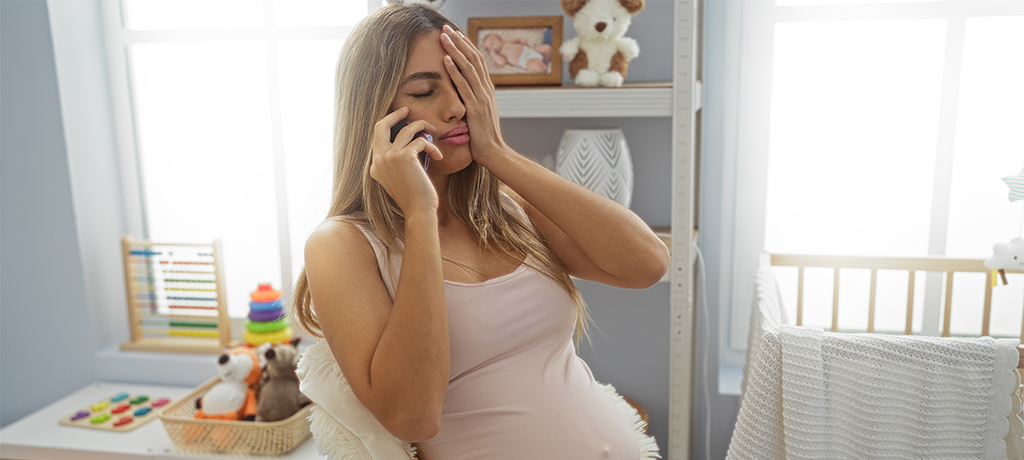
Chronic stress is more than just feeling overwhelmed — it can significantly impact women’s reproductive health. For many women in the UK, busy lifestyles, demanding careers, and personal pressures often contribute to ongoing stress. But what many don’t realise is how this constant strain affects fertility. Stress can disrupt hormonal balance, interfere with ovulation, and reduce the chances of conceiving naturally. It may also influence treatment outcomes for those undergoing fertility support. Understanding the link between stress and fertility is essential for women planning to start or grow their families. Let’s explore how stress truly affects women’s reproductive health.
Can Stress Affect Fertility in Women?
If you’ve ever wondered whether stress can affect fertility, the short answer is yes—and the science backs it up. Chronic stress triggers the release of cortisol, a hormone that, in excess, can interfere with the production of reproductive hormones like estrogen and progesterone. This hormonal disruption can lead to irregular ovulation or even stop ovulation altogether, making conception more challenging.
Research conducted in the UK highlights the link between stress and fertility struggles. According to the , stress doesn’t directly cause infertility, but it can exacerbate underlying conditions or make it harder for couples trying to conceive. For instance, a study published in Fertility and Sterility found that women with high-stress levels took longer to get pregnant compared to those who reported lower stress levels.
For women in London, where the cost of living and demanding lifestyles add extra pressure, managing stress becomes even more critical. If you’re trying to conceive and feeling overwhelmed, consider seeking support—whether through relaxation techniques or professional guidance—to give yourself the best chance of success.
Does Stress Cause Irregular Periods and Hormonal Imbalances?
Ever noticed your period going haywire during particularly stressful times? You’re not alone. Stress has a direct impact on your menstrual cycle because it affects the hypothalamic-pituitary-adrenal (HPA) axis—a system in your brain that regulates hormones. When you’re stressed, your body produces more cortisol, which can throw off the balance of estrogen and progesterone needed for a regular cycle.
This hormonal imbalance can result in shorter or longer cycles, heavier or lighter flows, and worsening PMS symptoms like mood swings, bloating, and cramps. In fact, research shows that women in the UK report higher instances of irregular periods during periods of prolonged stress, such as exam seasons or major life changes.
Understanding this connection is empowering. By addressing stress, you can potentially regain control over your cycle. Simple practices like mindfulness meditation or gentle exercise may help restore hormonal harmony and bring predictability back to your monthly rhythm.
Stress and PCOS: Worsening Symptoms
Polycystic Ovary Syndrome (PCOS) is one of the most common hormonal disorders affecting women in the UK, and stress can make its symptoms worse. PCOS is characterised by imbalances in insulin and androgen levels, leading to issues like irregular periods, weight gain, acne, and difficulty conceiving. Stress exacerbates these problems by increasing cortisol levels, which further disrupts hormone regulation.
For women in London dealing with PCOS, lifestyle factors like long commutes, sedentary office jobs, and poor sleep quality can amplify stress. These triggers create a vicious cycle, making symptom management feel impossible. However, adopting stress-reducing habits—such as prioritising sleep, eating balanced meals, and engaging in physical activity—can significantly improve PCOS symptoms.
If you suspect stress is worsening your PCOS, don’t hesitate to reach out to healthcare professionals. The offers excellent resources, including dietary advice and mental health support, to help you manage both your condition and stress levels effectively.
Stress During Pregnancy: Risks and Outcomes
Pregnancy is a beautiful yet vulnerable time, and maternal stress can pose risks to both mother and baby. High stress levels during pregnancy have been linked to complications such as premature birth, low birth weight, and even miscarriage. In severe cases, chronic stress can increase the risk of gestational diabetes and preeclampsia.
The advises pregnant women to prioritise self-care and seek support if they’re feeling overwhelmed. Techniques like prenatal yoga, breathing exercises, and talking therapies can be incredibly beneficial. Additionally, maintaining open communication with your midwife or GP ensures any concerns are addressed promptly.
Remember, no one expects you to navigate pregnancy perfectly. It’s okay to ask for help, especially if you’re experiencing heightened anxiety or depression. Your well-being directly impacts your baby’s development, so taking steps to manage stress is one of the best things you can do for both of you.
Workplace Stress and Women’s Reproductive Health
The hustle culture prevalent in London workplaces takes a toll on women’s reproductive health. Long hours, tight deadlines, and the pressure to perform can lead to burnout, which negatively impacts hormones and libido. Burnout isn’t just about feeling tired—it’s a state of emotional exhaustion that disrupts your body’s natural processes.
When workplace stress becomes chronic, it can suppress the production of sex hormones, leading to reduced libido and irregular periods. For women trying to conceive, this added layer of stress can feel defeating. Even outside of fertility concerns, ongoing stress at work can contribute to conditions like adrenal fatigue, further complicating hormonal balance.
To combat workplace stress, try setting boundaries, taking regular breaks, and practising mindfulness. Employers in the UK are increasingly recognising the importance of employee well-being, so don’t hesitate to utilise available resources like Employee Assistance Programs (EAPs) or flexible working arrangements.
How Cortisol Affects Women’s Reproductive Hormones
At the heart of stress’s impact on reproductive health lies cortisol, often referred to as the “stress hormone.” While cortisol plays a vital role in helping your body respond to stress, excessive amounts can wreak havoc on your reproductive system. Here’s why:
Cortisol competes with progesterone, a key hormone involved in regulating the menstrual cycle and supporting early pregnancy. When cortisol levels spike, progesterone production decreases, throwing off the delicate hormonal balance required for optimal reproductive function. Over time, this imbalance can lead to issues like amenorrhea (absence of periods), fertility challenges, and increased vulnerability to conditions like endometriosis.
The good news is that managing cortisol levels is within your control. Prioritising sleep, staying physically active, and practising relaxation techniques can all help keep cortisol in check. By addressing the root cause of stress, you can protect your reproductive health in the long term.
Managing Stress to Support Reproductive Health
Now that we’ve explored the various ways stress impacts reproductive health, let’s talk solutions. Managing stress isn’t about eliminating it entirely—it’s about finding healthy ways to cope. Here are some practical strategies tailored for women in the UK:
- Mindfulness and Meditation: Apps like Headspace and Calm offer guided meditations designed to reduce stress and promote relaxation.
- Physical Activity: Whether it’s yoga, swimming, or a brisk walk in one of London’s many parks, movement is a powerful stress reliever.
- Cognitive Behavioural Therapy (CBT): Available through the , CBT helps reframe negative thought patterns contributing to stress.
- Counselling Services: Free or low-cost counselling options are available across the UK, providing a safe space to discuss stress-related concerns.
- Healthy Lifestyle Choices: Eating nutrient-rich foods, staying hydrated, and getting enough sleep are foundational to managing stress.
If stress continues to affect your reproductive health despite these efforts, consult your GP or a specialist. They can assess underlying conditions and recommend personalised treatments to support your journey.
Conclusion
Stress is an unavoidable part of life, but its impact on women’s reproductive health doesn’t have to be permanent. By understanding the connection between stress, hormones, and fertility, you can take proactive steps to safeguard your well-being. Whether you’re navigating irregular periods, PCOS, fertility challenges, or pregnancy, remember that help is available—and you don’t have to face it alone.
To all the incredible women in London and across the UK: your reproductive health matters. Don’t hesitate to seek professional advice if stress is affecting your cycles, fertility, or pregnancy. With the right support and tools, you can reclaim control and build a healthier, happier future for yourself.
Take a deep breath—you’ve got this.






-in-the-UK.jpg)

